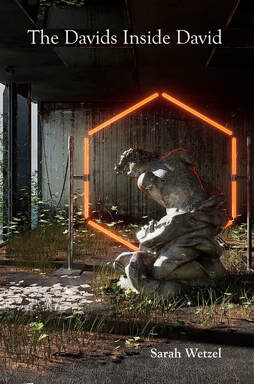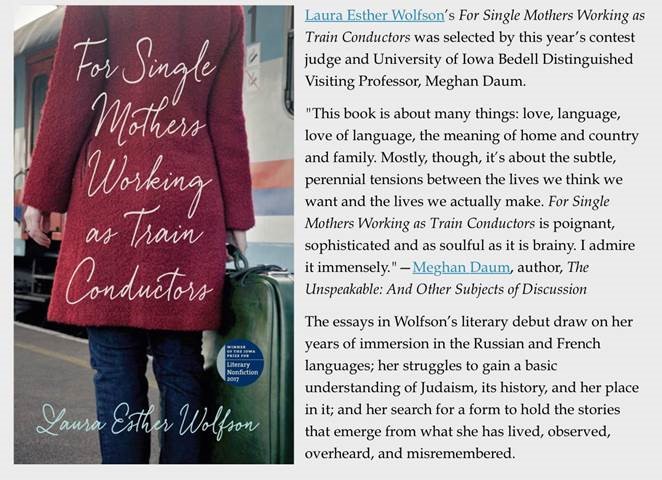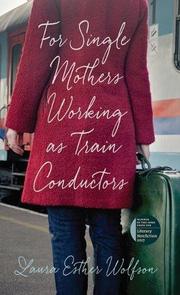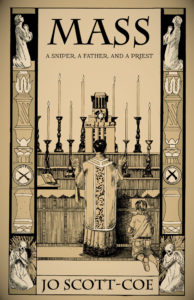 The Necessity of Writing (and Reading)
The Necessity of Writing (and Reading)
The need to write can be as essential and sustaining as any healthy addiction. With the commitment comes the inevitable desire to send the work out into the world to be published, perhaps in search of literary glory, or merely in the hope of finding corroboration that what one has written is worthwhile.
Writing is such a compulsion that it justifies itself; I often find myself returning to work that is years old, which nags at me, insisting that I give it another read. The energy in the prose sustains and reasserts the imperative of its creation. Because of the number and variety of these drafts, and how they occasionally mix genres, I never know when–or if–I’ll return to them to try to revise again.
At an AWP panel in Tampa this year, “How to Fail: On Abandoning a Manuscript, and Not”, the writers assembled discussed why or why not one might give up on a piece of writing. The consensus seemed to be that writers don’t easily give up on their work. This may be why William Faulkner advised us to kill our darlings—no one is going to do it for us. If success is only gauged by publication, most writers are serial failures. Yet writers who would never abandon their work seem to have hit upon a truth that lies at the heart of all writing: Only the writer herself can determine if a piece succeeds or fails. And perhaps the inherent stubbornness and persistence it takes to be a published writer means we do not give up projects so easily, or even when we should.
What does one hope to accomplish with this persistent—yet intermittent—revisiting, and revising, of past work? We’re likely not just doing it for its own sake. We can perhaps see a progression in the drafts, that there is more there than we might have recognized in previous drafts; there must have been something there all along. Whatever kernels of truth there are in the work, are worth looking at again. As well, it must increase the chances of publishing if we can make use of the material we have. For myself, it often feels right to reconsider an abandoned piece, as I’m aware that I don’t usually work on something I don’t intend to try to publish. And of course, it’s not always true that what I write gets published, but I understand what it takes. It also makes me aware that writing and revision seems to never end.
Though it’s possibly true that what the writer gets out of producing a piece of writing is not nearly the same as what the reader gets from it, could the need to write have any correlation to what a reader may feel drawn to in the writing? In his groundbreaking 1994 book The Gutenberg Elegies: The Fate of Reading in an Electronic Age, Sven Birkerts pairs the activity of reading and that of writing as, in essence, one and the same, of existing in a kind of symbiosis in the eye and mind of the beholder—that is, whomever is reading or writing it. Reading and writing could be the proverbial chicken or egg conundrum: which came first?
In relation to other arts, writing may be no less hard won in its creation than painting, or music, or film and drama. Yet these other arts are experienced by their audience with varying degrees of passivity. It’s even possible to experience them obliviously. In fact, it would be possible to experience these works and not engage with them at all. I would guess that not everyone who seeks out cultural artifacts is fully “on” in their presence. The same cannot be said of writing. Reading is a voluntary act of volition, which requires one to fully engage with it. It is almost useless to read passively.
Generally, when I read, I’m looking to be surprised, wowed, or otherwise blown away. I crave that unique experience, which occurs when a narrative is so seamlessly accomplished that it manages to defy precedent. I look for this in fiction, and most often this sustained experience is achieved in novels. Not surprisingly, it’s usually these goals that I aspire to when I write.
I have the compulsion and habit of writing in multiple genres. People argue and make justifications for the superiority of one genre over another. Still, it’s all writing. Lately, I’ve been focused on poetry. Having written poetry for years, I undertook recently to study with an award-winning poet, and I’m encouraged. I read and write poetry with a sense of rediscovery, almost as if working muscles I didn’t know I had. I can sense I’m breaking ground for myself, which is an exciting part of the experiment that is my writing vocation.
My interest in writing across genres—and not being defined by any one—stems from restlessness, and that genre hopping is fed by my frequently broad reading. This restlessness may also just be a way of shaking myself from complacency, keeping fresh what is in front of me. I use writing toward whatever ends my mind craves. Poetry, for me, is the purview of feeling and emotion, and playing with language. Although the same might be said of fiction, I believe fiction is driven by the play of characters. The characters of fiction become real to me, and I become their caretaker. These characters are perhaps stand-ins for my own interests, and I use them to explore motive and action. There is frequently a spiritual depth to this work.
What fiction offers to a reader is story and a possibility of an empathetic identification with the characters in the work. Fiction projects a simulacrum of emotion we might feel, safely in the realm of language. We are safe because it’s only feelings we are “trying on” temporarily. We may be emotionally invested, but we are in our own heads. There are few repercussions. It can also engage the reader in the way that narrative seeks to find resolution. Narrative, which is telling a story, is inherently a form of entertainment.
Nonfiction, of the type you are currently reading, is driven by a desire to clarify my thinking, or to codify an experience. Nonfiction can be intellect driven work. I find that writing in a journal, for example, is essentially the deliberative framing of my thinking. The goal is often to find the energy in a piece with the momentum of a thesis, for an essay or blog.
When I write, I give myself license to not always have a clear objective. Writing is to wrestle and struggle with the unknown. To write to whatever end occurs to me is a search for the objective in the subjective. All of this is a way of trying to explain the motivation to write, the necessity of it. I can’t be sure I am providing for a reader what I look for in writing, but I hope in some way that I’m close.
As much as I am a writer, I am a reader, and vice versa. It seems almost strange to say it, but I really read to learn how I can write better. How to pull off—using an imprecise expression—the tricks that I find in exemplary work that upends precedent. This is not to say I don’t also read for joy, and frisson, and to get a sense of my place in the world. But at the crux of it all is the desire—the necessity–to write, and to hopefully impart that desire to an eager reader.


 The Necessity of Writing (and Reading)
The Necessity of Writing (and Reading)
 Today we are glad to feature poet Margaret Young as our Authors Talk series contributor. Margaret offers thoughts on her poems, “September Diary, Dreams and Walking” and “Moving On.” She identifies her mother’s absence as well as images and ideas of nature and its non-human elements as recurring characters in both poems. Margaret concludes her talk by discussing the challenge of writing about living family so directly and inviting her father’s poetry into her own work.
Today we are glad to feature poet Margaret Young as our Authors Talk series contributor. Margaret offers thoughts on her poems, “September Diary, Dreams and Walking” and “Moving On.” She identifies her mother’s absence as well as images and ideas of nature and its non-human elements as recurring characters in both poems. Margaret concludes her talk by discussing the challenge of writing about living family so directly and inviting her father’s poetry into her own work. Today we are pleased to feature Jen Knox as our Authors Talk series contributor. Jen talks about her contributions to Superstition Review and what she, as a reader, looks for in a strong short story. Jen also says that the why and how she writes ultimately boils down to character and her desire to understand the human condition from different purviews. She ends her talk by offering advice to burgeoning fiction writers.
Today we are pleased to feature Jen Knox as our Authors Talk series contributor. Jen talks about her contributions to Superstition Review and what she, as a reader, looks for in a strong short story. Jen also says that the why and how she writes ultimately boils down to character and her desire to understand the human condition from different purviews. She ends her talk by offering advice to burgeoning fiction writers. Today we are happy to announce
Today we are happy to announce  Today we are pleased to share that
Today we are pleased to share that  Mass: A Sniper, a Father, and a Priest by
Mass: A Sniper, a Father, and a Priest by  We are excited to share news that Kevin McLellan’s 2018 forthcoming collection Ornithology (the Word Works) will include seven poems published with Superstition Review. Kevin has made available a
We are excited to share news that Kevin McLellan’s 2018 forthcoming collection Ornithology (the Word Works) will include seven poems published with Superstition Review. Kevin has made available a